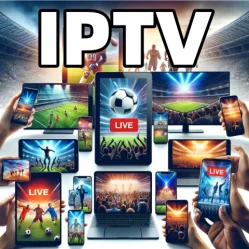The convergence of Smart TV technology and IPTV Internet Protocol Television has revolutionized the way we consume entertainment, creating a perfect match that caters to the evolving demands of modern viewers. In today’s fast-paced digital landscape, where traditional cable and satellite services often fall short in flexibility and personalization, Smart TVs equipped with IPTV capabilities offer a seamless and engaging viewing experience. Smart TVs, which are essentially internet-connected televisions, come with built-in applications and features that allow users to access streaming services, browse the web, and interact with various media platforms directly from their screens. IPTV, on the other hand, uses internet protocols to deliver television content, allowing users to stream live TV channels and on-demand shows through their internet connection rather than relying on conventional broadcasting methods.

This innovative pairing enhances user convenience by providing an expansive range of content that can be tailored to individual preferences. With iptv subscription services, viewers can enjoy thousands of channels, from popular international networks to niche programming, all accessible at the click of a button. Additionally, Smart TVs often come with user-friendly interfaces, making it easier to navigate between various apps and content types, from streaming services like Netflix and Hulu to IPTV platforms. This integration allows for a more cohesive viewing experience, where users can switch from watching a live sports game on an IPTV channel to binge-watching their favorite series on a streaming service without the hassle of changing devices or inputs. Moreover, the advent of smart assistants and voice recognition technology in Smart TVs further enhances the viewing experience. Users can simply speak commands to find content, adjust settings, or even control their home entertainment systems.
This hands-free interaction is particularly appealing in a world where multitasking has become the norm. In terms of picture and sound quality, modern Smart TVs are equipped with advanced display technologies such as 4K and HDR, which ensure that the streaming content delivered via IPTV is viewed in the highest quality possible. This capability is crucial as consumers increasingly expect their home viewing experiences to match or exceed the quality of traditional cinema. Additionally, many IPTV services offer cloud-based DVR options, enabling viewers to record shows and watch them at their convenience, thus further solidifying the flexibility that modern audiences crave. The combination of Smart TV and IPTV not only caters to individual viewing preferences but also promotes social viewing experiences. With the rise of social media integration, viewers can share their watching experiences, recommend shows to friends, and even engage in real-time discussions about what they are watching, all while enjoying high-quality content.